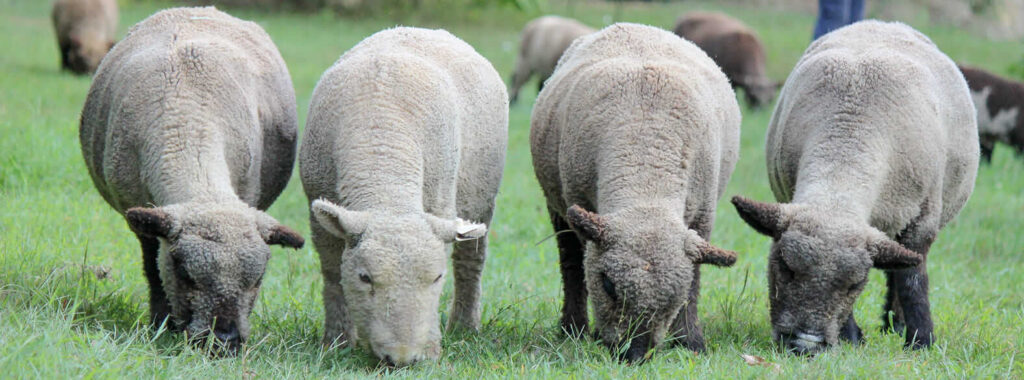Babydoll sheep, often referred to as miniature sheep, are a unique breed cherished for their diminutive size and charming appearance. Originating from England, these sheep were traditionally kept for their wool and meat. However, their compact stature and gentle demeanor have made them increasingly popular as pets and ornamental animals.
Size of Babydoll Sheep
On average, Babydoll sheep stand around 18 to 24 inches tall at the shoulder and weigh between 24 to 50 pounds. This places them among the smallest sheep breeds globally, captivating enthusiasts with their petite proportions. In comparison to larger sheep breeds like the Suffolk or Hampshire, Babydoll sheep appear almost toy-like in stature.
Factors Influencing Size
Several factors contribute to the size of Babydoll sheep, including genetics, nutrition, and environment. Genetics play a significant role, as selective breeding programs aim to maintain their small stature while ensuring overall health and vitality. Adequate nutrition during gestation and early development is crucial for achieving optimal size. Additionally, the environment in which the sheep are raised can impact their growth potential.
Benefits of Small Size
The diminutive size of Babydoll sheep offers numerous advantages for farmers and hobbyists alike. Their small stature makes them easier to manage and handle, particularly for children and individuals with limited physical strength. Additionally, their compact size translates to reduced space requirements, making them ideal for small farms or urban homesteads. From an economic standpoint, their modest appetites result in lower feed costs compared to larger livestock breeds.
Challenges of Small Size
While the small size of Babydoll sheep has its advantages, it also presents unique challenges. One concern is their susceptibility to certain health issues, including obesity and joint problems. Breeding Babydoll sheep can also be challenging, as achieving a delicate balance between maintaining their small size and avoiding genetic abnormalities such as dwarfism requires careful selection and monitoring.
Breeding Practices for Size Control
To maintain the desired size of Babydoll sheep, breeders employ various strategies, including selective breeding and vigilant monitoring of growth rates. By selecting for traits associated with smaller stature while ensuring genetic diversity within the population, breeders can perpetuate the characteristics that make Babydoll sheep unique. Additionally, avoiding inbreeding and genetic mutations is essential for minimizing the risk of health issues associated with small size.

Care and Maintenance
Proper care and maintenance are essential for ensuring the health and well-being of Babydoll sheep. A balanced diet consisting of high-quality forage and supplemental feed is crucial for meeting their nutritional needs. Adequate shelter from the elements, particularly during inclement weather, helps protect them from stress and illness. Regular veterinary check-ups and preventative measures such as vaccinations and parasite control are also essential for maintaining their overall health.
Popular Uses of Babydoll Sheep
Beyond their appeal as pets, Babydoll sheep serve various practical purposes. Their gentle disposition makes them ideal candidates for petting zoos and educational programs, where they delight visitors of all ages. Additionally, their fine wool is highly prized by fiber artists and crafters for its softness and warmth. Babydoll sheep are also valued for their ability to graze and maintain landscapes, making them valuable additions to vineyards, orchards, and eco-friendly landscaping projects.
Conclusion
In conclusion, Babydoll sheep captivate enthusiasts with their diminutive size and endearing demeanor. While their small stature presents unique challenges, careful breeding and attentive care can help mitigate potential health issues and ensure their well-being. Whether kept as pets, wool producers, or landscape managers, Babydoll sheep continue to charm and inspire admiration worldwide.
FAQs:
- Are Babydoll sheep suitable for beginners?
- Yes, their small size and gentle nature make them ideal for novice farmers and hobbyists.
- Do Babydoll sheep require special care compared to larger breeds?
- While they have specific needs, such as monitoring for obesity and joint health, their care requirements are generally similar to other sheep breeds.
- Can Babydoll sheep be kept in urban environments?
- Yes, their compact size and modest space requirements make them well-suited for small farms and urban homesteads.
- Are Babydoll sheep good wool producers?
- Yes, their fine wool is highly sought after by fiber artists for its quality and softness.
- What colors are Babydoll sheep available in?
- Babydoll sheep come in a variety of colors, including white, black, and various shades of brown and gray.